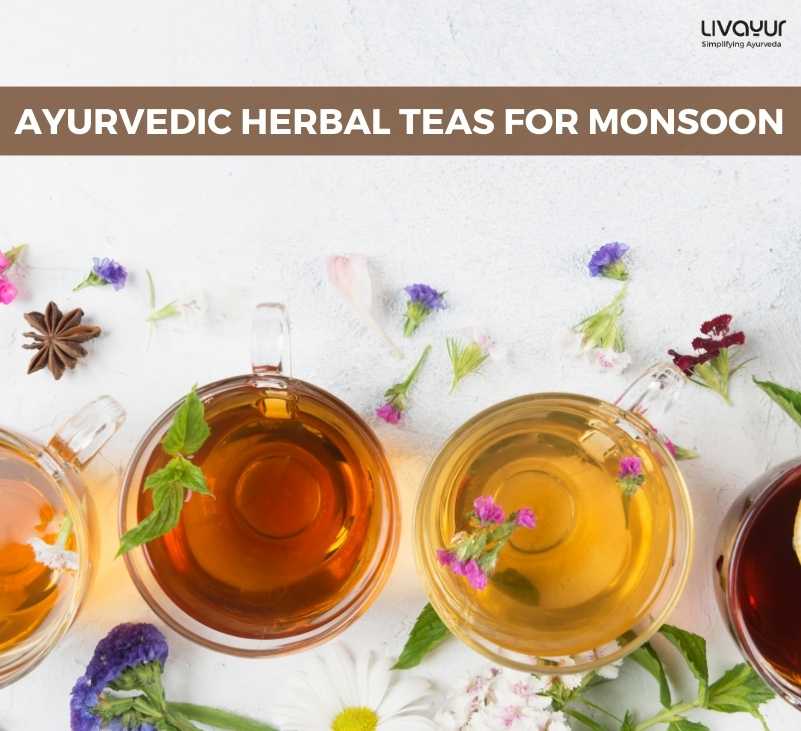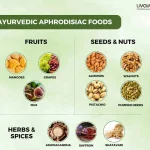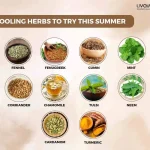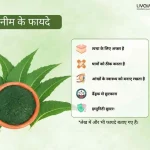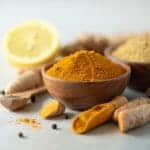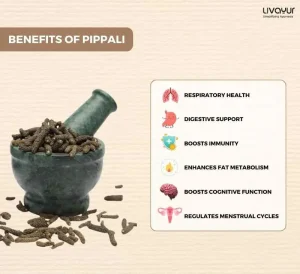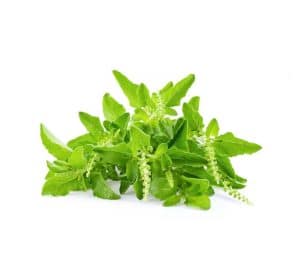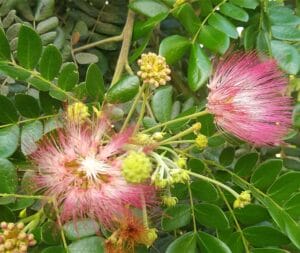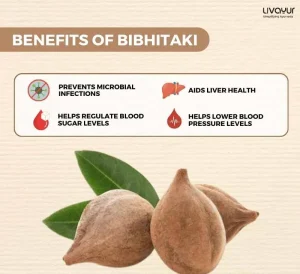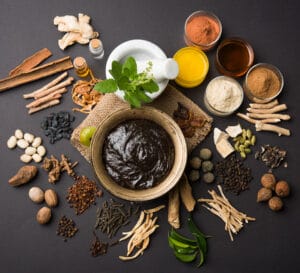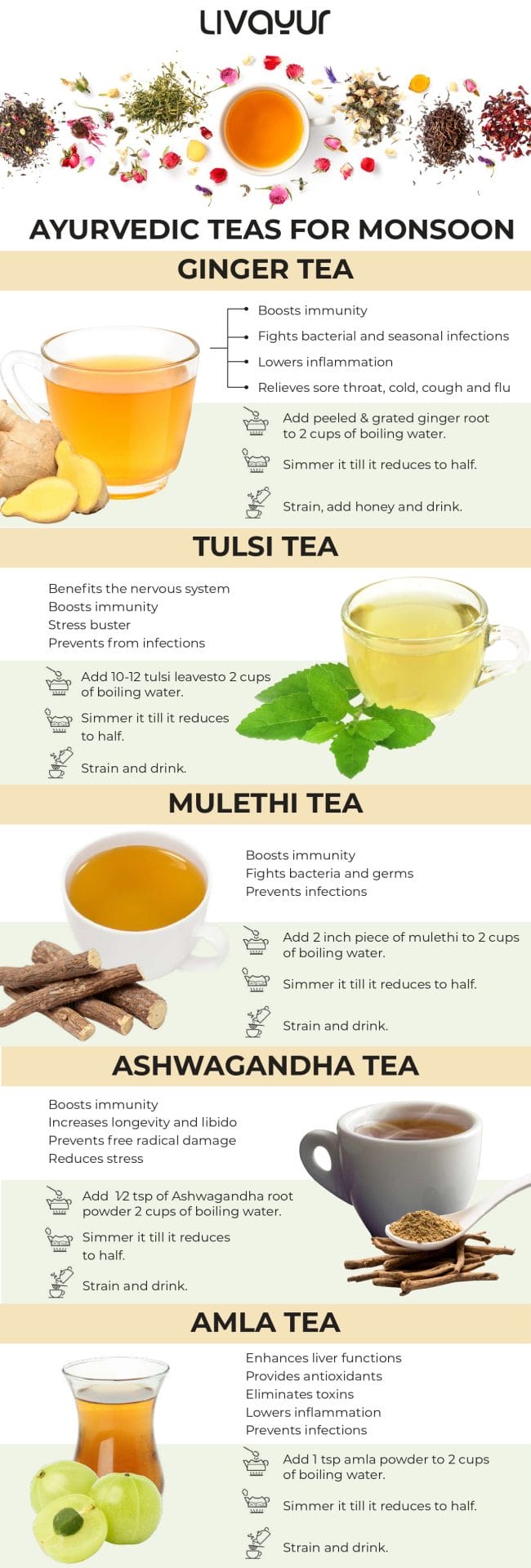
Monsoons are the season of infections and allergies. During this season, it is important to maintain immunity, stamina and strength of the body. Therefore, Ayurveda recommends many herbal teas for the monsoon that help prevent infections, fight oxidative damage, boost immunity and relieve cold and flu. Find here the 10 best herbal teas for the monsoon by Ayurveda. [1][2][4]
1. Ginger Tea
Ginger Tea is a tasty treat and a powerful shield against seasonal flu. Beyond its distinct and soothing flavor, it also has anti-inflammatory powers that help your immune system stay strong, keeping you healthier during the weather transition.
Benefits:
- Ginger contains compounds that enhance the immune system, helping the body ward off infections.
- Alleviates inflammation, providing relief from sore throat and respiratory issues.
- Eases digestive discomfort, bloating, and nausea.
How-to-make:
1. Boil water and add sliced ginger.
2. Simmer for 10 minutes.
3. Strain, add honey or lemon for flavor.
2. Tulsi Tea
Tulsi Tea is a great friend for beating stress and staying healthy. It works wonders for your immune system.
Benefits
- Fights infections and strengthens the immune system.
- Helps the body adapt to stress, reducing its impact.
- Eases respiratory congestion and allergies.
How-to-make
1. Boil water and add fresh tulsi leaves.
2. Steep for 5-7 minutes.
3. Strain and enjoy with honey, if desired.
3. Mulethi Tea
Mulethi Tea helps with the inflammation, aids digestion. For people with sinusitis issues, it regulates their breathing properly, during the ups and downs of the weather.
Benefits
- Soothes inflamed mucous membranes in the respiratory tract.
- Acts as an expectorant, providing relief from cough and cold.
- Aids digestion and soothes acidity.
How-to-make
1. Boil water and add mulethi powder or roots.
2. Simmer for 15 minutes.
3. Strain and add a touch of honey for sweetness.
4. Ashwagandha Tea
Ashwagandha is a multi-faceted herb widely used in Ayurvedic decoctions. It helps you de-stress and give your body a boost, especially when the weather is unpredictable. It boosts our immunity and specially great for women’s health.
Benefits
- Helps the body adapt to stress and enhances resilience.
- Calms the mind and promotes relaxation.
- Supports overall immune function.
How-to-make
1. Brew ashwagandha root or powder in hot water.
2. Allow it to steep for 10-15 minutes.
3. Strain and add a dash of cinnamon or cardamom for flavor.
5. Amla Tea
Amla is super-rich in Vitamin C. It’s like a golden ticket to detox your body and keep you feeling great. It’s like a daily dose of Ayurvedic goodness in a cup.
Benefits
- Boosts immunity and protects against infections.
- Fights oxidative stress and promotes overall well-being.
- Supports liver function and aids in detoxification.
How-to-make
1. Boil water and add dried amla slices or powder.
2. Steep for 10 minutes.
3. Strain and enjoy with a hint of jaggery.
6. Peppermint Tea
Peppermint Tea is like a burst of freshness for your digestion and a mental pick-me-up. Perfect for lifting your spirits during the unpredictable weather.
Benefits
- Relieves indigestion and bloating.
- Invigorates the mind and enhances focus.
- Provides relief from inflammation and fever.
How-to-make
1. Boil water and add fresh or dried peppermint leaves.
2. Steep for 5-7 minutes.
3. Strain and add a slice of lemon for a refreshing twist.
7. Cardamom Tea
Cardamom tea helps regulate your digestion and is a spicy twist on your regular tea. Its aroma uplifts your mood and warms your body and your heart.
Benefits
- Eases indigestion and flatulence.
- Fights infections and supports respiratory health.
- Acts as a natural mood enhancer.
- Helps regulate irregular menstruation.
How-to-make
1. Crush cardamom pods and add to boiling water.
2. Steep for 7-10 minutes.
3. Strain and savor the aromatic tea.
8. Chamomile Tea
Chamomile Tea helps you relax, soothes inflammation, and makes sure you get a good night’s sleep. [3]
Benefits
- Promotes relaxation and improves sleep quality.
- Soothes skin irritations and respiratory issues.
- Calms the nervous system, reducing stress.
How-to-make
1. Steep dried chamomile flowers in hot water.
2. Allow it to steep for 10 minutes.
3. Strain and enjoy before bedtime.
9. Lemongrass Tea
Lemongrass is a great immunity booster, helps you relax, and lift your mood during the unpredictable weather.
Benefits
- Fights infections and supports overall immune health.
- Eases digestive issues and bloating.
- Provides a burst of energy and freshness.
How-to-make
1. Boil water and add fresh or dried lemongrass.
2. Steep for 5-7 minutes.
3. Strain and add a touch of honey or mint.
10. Holy Basil (Vana Tulsi) Tea
Vana Tulsi is not just an herbal brew; it’s a friendly guardian for your respiratory health.
Benefits
- Reduces inflammation and supports joint health.
- Protects against oxidative stress.
- Eases congestion and promotes clear breathing.
How-to-make
1. Brew Vana Tulsi leaves in hot water.
2. Steep for 10 minutes.
3. Strain and enjoy with a squeeze of lemon.
Conclusion
Embrace the Ayurvedic wisdom encapsulated in these 10 herbal teas tailored for the monsoon. Elevate your well-being by incorporating these natural elixirs into your daily routine. As the rains pour, let the richness of these teas nourish your body, mind, and spirit.




